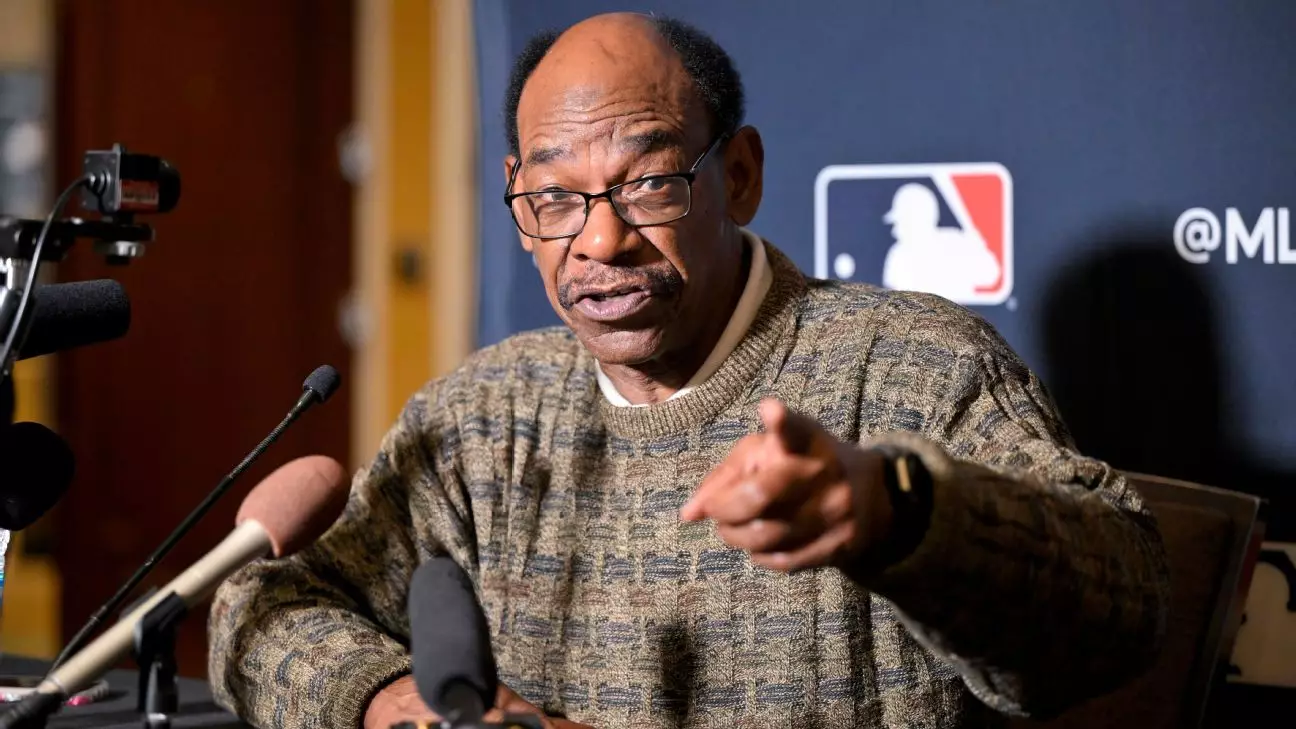Every year, Major League Baseball (MLB) holds its winter meetings, an event that has become a cornerstone of the baseball calendar. It is a unique gathering where players, agents, and general managers come together under one roof, creating an electrifying atmosphere filled with excitement about trades and free-agent signings. However, the true beauty of these meetings extends beyond high-profile player negotiations; it involves a crucial dialogue among managers regarding the rule changes, playoff formats, and the general health of the game. This year’s meetings took place in Dallas, and the conversations highlighted a blend of optimism and concern among the 30 managers present.
One of the most pressing topics during the winter meetings was MLB’s recent rule changes aimed at speeding up the game and enhancing its appeal. Managers like Dave Martinez of the Washington Nationals expressed cautious optimism about these changes. Martinez stated that while the adjustments initially required some adaptation, he believes they have set MLB on a path to improvement. His perspective reflects a growing recognition that the game must evolve to attract a broader audience.
Conversely, Ron Washington of the Los Angeles Angels raised valid concerns about the impact of these rule changes on pitchers, particularly young ones. He advocated for more flexibility, suggesting that pitchers need adequate time to execute their pitches. His call for balance between maintaining the pace of play and respecting the needs of players is an essential consideration that deserves further exploration.
Managers such as Derek Shelton of the Pittsburgh Pirates and A.J. Hinch of the Detroit Tigers proposed innovative ideas like implementing a challenge system for the strike zone, similar to minor league experiments. Their insights underscore an eagerness to refine the game’s rules further, adapting them to enhance fairness and excitement while preserving the game’s integrity.
The playoff format was another major subject among managers, with various perspectives emerging. Brandon Hyde of the Baltimore Orioles shared a positive view of the expanded wild-card format, believing it creates more engaging contests late in the season. His opinion aligns with a broader shift toward increased competitiveness, ensuring that more teams are still pursuing victory as the season winds down.
On the other hand, Ron Washington raised a critical point about teams that dominate their divisions, suggesting that they often become inactive as they await the playoffs. This can create a scenario where teams risk losing momentum, making it vital for MLB to find a solution that keeps all playoff participants sharp and ready.
Rocco Baldelli of the Minnesota Twins echoed similar sentiments, affirming that an expanded format can invigorate the league and keeps fans engaged by promoting a competitive spirit. The overarching question remains: How can MLB ensure that success in the regular season translates into a robust postseason experience?
One issue highlighted was the prevalence of bullpen games during the playoffs, as pointed out by Terry Francona of the Cincinnati Reds. He criticized this trend, asserting that it is not representative of how teams are constructed through a lengthy season. Francona advocates for a system that ensures teams utilize their entire roster after a grueling 162 games, thereby offering a clearer indication of which teams are truly the most balanced and competitive.
This sentiment reflects a broader unease regarding the reliance on relief pitching in critical games, leading to questions about the long-term impact of such strategies on player development and the authenticity of playoff competition.
Another intriguing discussion point among managers was the players they fear most on opposing teams. Several names came up, showcasing a deep respect for talent in the league. From Shohei Ohtani’s multifaceted prowess to Aaron Judge’s intimidating presence at the plate, managers unanimously agreed that certain players can change the game’s landscape with a single swing.
The consensus among managers highlights not just the challenge these star athletes present, but also a deep appreciation for the spectacular skill they bring to the game. It serves as a reminder of why fans love baseball – the stunning plays and game-defining moments crafted by exceptional talent.
As the MLB continues to adapt and grow, the insights shared at the winter meetings capture the essence of a sport striving for balance between tradition and innovation. Managers carry the torch of leadership in navigating the evolving landscape of baseball. Their reflections on rule changes, playoff formats, and standout players indicate a deep commitment to making the game more engaging, competitive, and enjoyable for fans.
In a world where entertainment options are endless, MLB must take heed of its stewards‘ voices, ensuring that the game remains relevant and resonates with audiences both old and new. The path forward is undoubtedly challenging, but with an open dialogue fostered during events like the winter meetings, there is every reason to believe that baseball’s best days are still ahead.


Napsat komentář